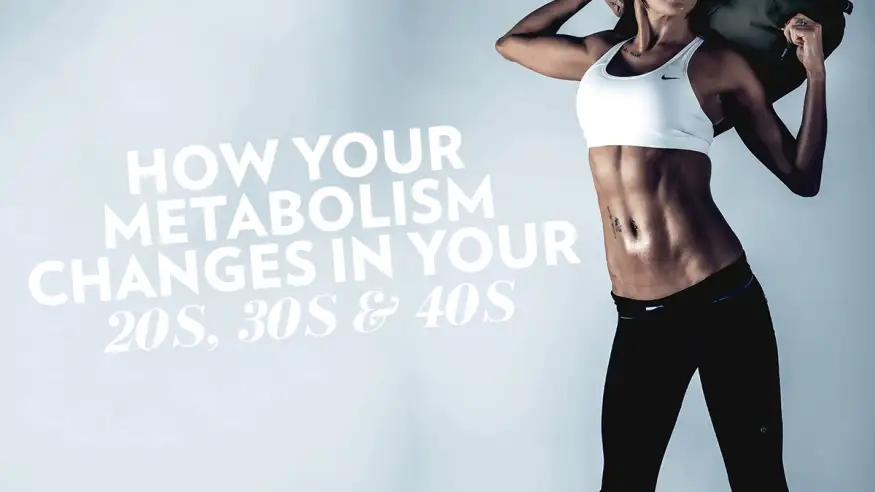The Truth About Your Metabolism! And Why Strength + Resistance Training Is Your Best Friend


Whether we want to admit it or not, metabolism is one of those things that changes as we get older. But don’t worry, the good news is that it is totally manageable and you can fight the effects aging has on your metabolism. While you can’t completely beat father time, you can come pretty darn close. All you need is a little education and self-awareness on the issue and you’ll be prepped for the boxing ring with your metabolism!
So what is your metabolism, anyways? Do you really now? Well before you stress over it and start to only eat celery and grilled chicken, let’s discuss what your metabolism REALLY is.
What is metabolism?
Metabolism is a process by which your body converts food into energy for your cells. Now your cells power everything in your body. Literally everything, from your heart pumping to your brain thinking. Cells even control how you sleep. Calories are the energy molecules that we get from our food. So this is why if we eat more calories than our body can burn, it will convert those calories into fat storage. This is because fat storage is like our gas tank. Our fat stores are what our body uses to get energy when it does not have enough calories that day.
Metabolism is a 2 part process: (1) breaking down chemical bonds in food to release energy. This is the catabolic reaction. And (2) storing energy as chemical bonds for us to use later. This is anabolic reaction. We eat, the food is broken down, energy is extracted, energy is used, energy is stored as fat and so on.
The rate at which we burn through energy and the rate at which we accumulate storage relies on a number of factors, from body composition to the types of food we eat to how active, and what kind of active we are.
So how does this process change as we get older, and what does that mean for our bodies?
Your metabolism in your 20s
In your 20s you should not feel too many affects on your metabolism. Essentially you are still youthful enough to not worry about your metabolism. But you should definitely be cognizant of it, because your decisions in your 20s can certainly affect you in later years. During your 20s your body is actually still growing (not vertically… usually). Muscles are still growing and developing which in turn requires much energy from our cells. So we are burning more calories even while sedentary then we would be in our 30s or 40s. The more muscle mass and “less metabolically active fat” we have, the more calories we burn in a day. Furthermore, you continue to build bone until the age of 25, this requires even more energy.
Into your late 20s you may start to undergo up to a 2% decrease in your natural metabolic resting activity rate. Therefore during your late 20s you may begin to notice that what you eat and how active you are will begin to affect how you look and feel. A decrease in your metabolic resting rate means that we start to lose the fat free mass that burns a lot of energy and we being to gain less metabolically active fat. So what does that mean? It means that you have to eat better and work harder to maintain your caloric daily burn.
As much as cardio is awesome for burning calories and keeping your heart in shape, the real game changer is strength and resistance training. Muscles need more energy to sustain than anything else in the body. So if you increase your muscle mass, then you in turn increase the number of cells that need and utilize energy. This is called your basal metabolic burn. Muscles are your best friend when it comes to increasing your basal metabolic burn.
Your metabolism in your 30s
Our bodies have a funny way of doing what they want… The typical human will begin to lose muscle mass at the age of 35. This decrease in muscle mass can cause noticeable changes in your metabolism. And by noticeable we mean, if you don’t watch what you eat and do strength training, then you will see changes in your body. The reason for that is, if we have less muscles then the body requires less calories to maintain on a day to day basis. So either you need to eat less or put on these muscles through exercise.
Plus, by the time you’re in your 30s, you’re no longer producing as high of levels of Human Growth Hormone (HGH) as you were in your 20s, which further decreases metabolism.
Bottom Line: Cardio matters less in your 30s and strength training is crucial.
Your metabolism in your 40s
You’re “over the hill”, so now what? Well at this point your body is not longer regenerating cells as quickly as it used to. This means that you may not see the results as easily as you saw in your 30s. But this doesn’t mean that you should just give up on your training. This means that you need to really be mindful of training for strength and muscle growth. Basically, don’t let your body plateau!
So while in your 30s we mentioned watching your food, but we did not mention that you will need to adjust your foot intake. Well, now you need to adjust your food intake. The good news is: not by much. If you merely cut out 200 calories per day and maintain a good strength training regiment and a healthy diet, then you should be just fine. Oh, and try to watch alcohol (eek!).
As you approach menopause, you may also notice more body fat settling around your middle: this is entirely normal and a response to changing estrogen levels, but these added fat cells slow down metabolism even more.
The Trick To Not Losing Control Of Your Metabolism
- DO NOT yo-yo diet. We repeat, DO NOT! This does nothing but destroy your metabolism and leaves you worse off then before. We promise!
- Do not wait all day to eat. Eating one large meal a day is terrible for your metabolism. This of your metabolism as a fire that needs wood to keep burning. So you need to keep feeding your fire, like every 3-4 hours.
- Don’t think that cutting calories alone is enough. It’s not. Trust us.
- Get sleep. Your cells are designed to rest and reboot each day. If you don’t let them do that, then how are they going to burn energy for you?


